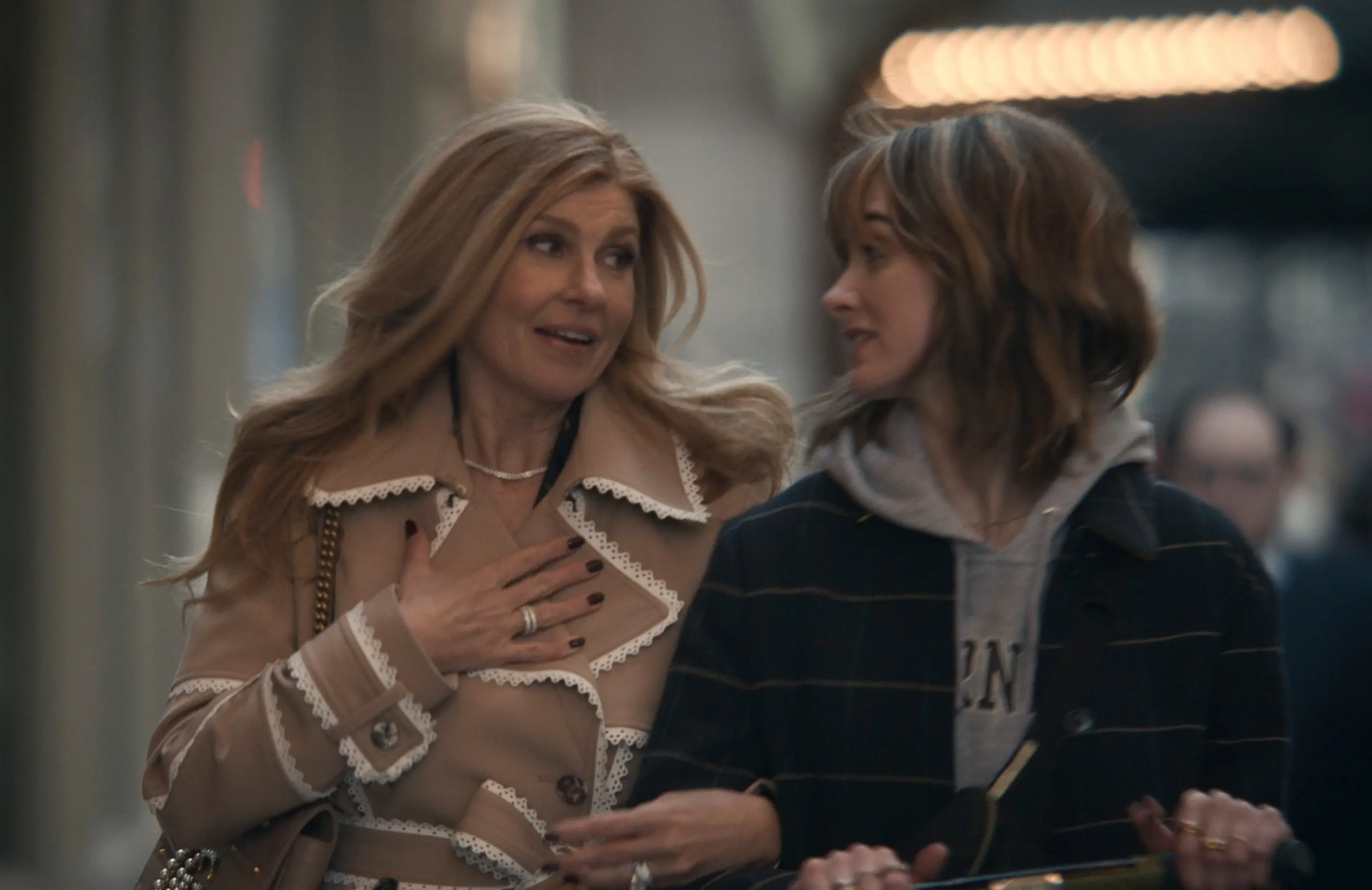Apple TV+’s Dear Edward Breaks the Rules for Catastrophe TV
-
 Connie Britton and Audrey Corsa in Dear Edward (Photo: Apple TV+)
Connie Britton and Audrey Corsa in Dear Edward (Photo: Apple TV+)Communities often form in the aftermath of a tragedy, from neighbors standing outside a burning house to survivors founding an advocacy group, and in 21st-century television, these ad hoc societies are often tinged with terror: Think of the cult on Yellowjackets, the smoke monster that chases the Lost islanders, or the troupe of artists that learns to kill on Station Eleven. Considering the anxiety that’s pervaded this century — and the catastrophes that have stacked up like leaves on the ground — this fraught tone might almost feel necessary. And that’s why Dear Edward is such a heartrending surprise. Though it begins in grief, it refuses to stay there.
Based on the novel by Ann Napolitano, the Apple TV+ series launches with a plane crash that kills everyone on board except a 12-year-old boy named Edward Adler (Colin O’Brien). Or rather, it begins with the lead-up to that crash. Before the expected shots of the plane shaking and frightened passengers praying, there are scenes of the travelers in the days before takeoff. A Harlem congresswoman tells her granddaughter Adriana (Anna Uzele) that the young woman needs to fulfill her destiny as a public servant. A Manhattan socialite named Dee Dee (Connie Britton) has a birthday lunch with her daughter and ignores texts from her husband, who’s headed for the airport. As they board the plane, Edward bickers with his brother Jordan (Maxwell Jenkins) about who’s getting the window seat, and he tells his parents he’s unhappy they’re moving across the country for his mother’s job.
These scenes aren’t weighted with heavy symbolism. Nobody makes prophetic statements or sees a raven circling in the sky. Instead, series creator Jason Katims (Friday Night Lights) writes everyday people doing everyday things, which gives dignity to the everyday lives they’re about to lose. To stress that point, the first episode ends inside the plane as it’s going down, and during the chaos, director Fisher Stevens cuts to scenes of what the passengers are thinking during their final seconds on earth. There are flashes of loved ones — of smiles, hands, and embraces. It’s remarkable how much sorrow flows from such simple details.
This montage foreshadows the rest of the series. Every storyline is about characters trying to cherish the little things. All of them make mistakes. Adriana gets stuck between falling in love and honoring her grandmother’s political legacy. Dee Dee tries to pretend that everything is fine, even when she discovers shocking secrets about her husband. Edward reels from the death of his parents and brother, and his aunt Lacey (Taylor Schilling) tries to be his mother on a moment’s notice. Other characters deal with pregnancies, affairs, loneliness, and guilt, but the important thing, really, is that even though all of them falter, they eventually move forward.
The show depicts their healing with very little schmaltz. There’s an occasional scene where a kid makes her father promise he’ll never let her go, but the core is in the grief group that many of the survivors join. That’s where they can be ugly, funny, angry, and despondent. The writing team, including celebrated playwrights Rajiv Joseph and Halley Feiffer, lets these scenes be awkward and messy. People don’t always express themselves well, and sometimes, they don’t say much at all. That makes the eventual hopefulness feel earned, not Hallmark simple.
In a large and excellent ensemble, two actors especially enhance this patient storytelling. The first is Britton, who famously collaborated with Katims on Friday Night Lights. She gives Dee Dee a brash, impulsive zest for life, so that when she’s excited by an idea, she curses in front of a priest. It’s easy to understand why she becomes the grief group’s mother hen, and it’s a hoot watching her eye-roll reactions to the people who annoy her. And when Dee Dee breaks down, her vulnerability is just as hot, arriving in sudden flashes of fear or sadness. She’s both a nurturing soul and high-maintenance drama queen, and Britton makes her sparkle.
Then there’s O’Brien, whose haunted, frequently wordless performance brims with just as much feeling. Like Haley Joel Osment in The Sixth Sense, he’s asked to carry an incredible weight in his performance, and he does it without losing the sense that Edward is still a kid. There are several episodes where the character acts out, and O’Brien makes it clear that he doesn’t understand his own feelings. His mute confusion about his emotions ought to seem familiar to anyone who remembers the onslaught of adolescence.
And that’s another crucial element of the show: Although it’s about an extraordinary ordeal, it’s also about the strategies that anyone might develop to get through their lives. Most people won’t lose a loved one to a plane crash, but everyone will face something so hard it seems impossible to overcome. Dear Edward insists that, on the contrary, people can find their way through anything.
The first three episodes of Dear Edward premiere February 3 on Apple TV+. New episodes Fridays through March 24. Join the discussion about the show in our forums.
Mark Blankenship has been writing about arts and culture for twenty years, with bylines in The New York Times, Variety, Vulture, Fortune, and many others. You can hear him on the pop music podcast Mark and Sarah Talk About Songs.
TOPICS: Dear Edward, Apple TV+, Colin O'Brien, Connie Britton, Jason Katims, Taylor Schilling